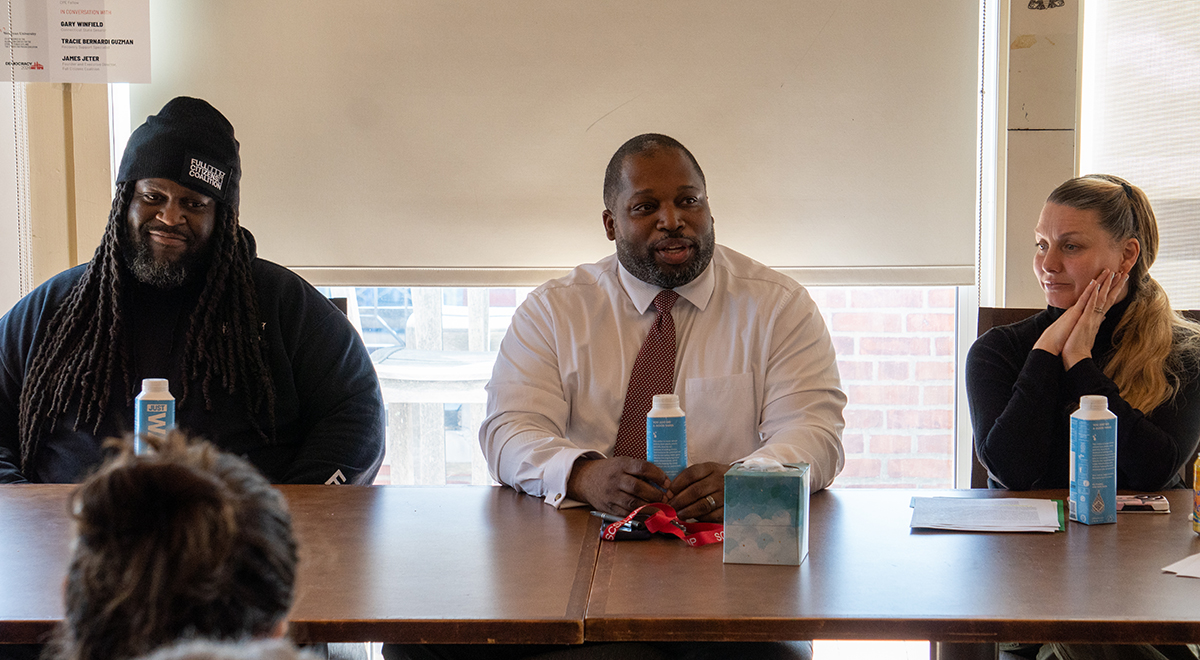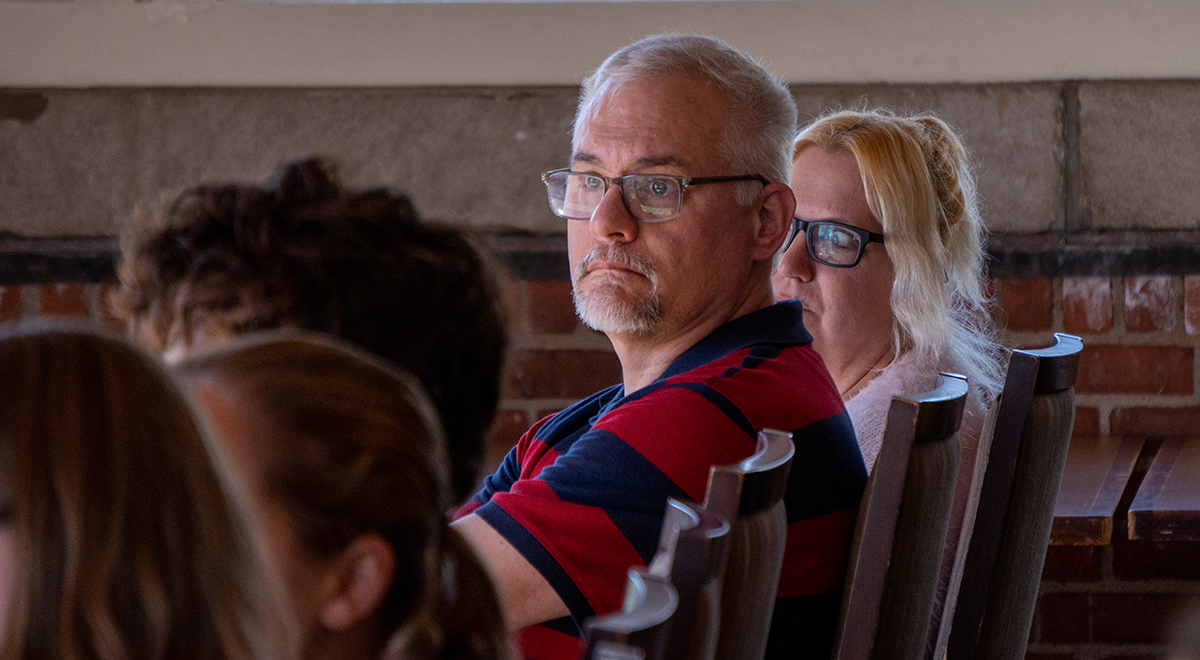Breaking Down ‘Barriers to the Ballot’

There are only three places in the United States where incarcerated individuals never lose their right to vote: the District of Columbia, Maine, and Vermont. Connecticut is one of 23 states where incarcerated people lose their right to vote, according to the National Conference of State Legislatures. In 2021, the state passed a bill restoring the right to vote for most people on parole and probation.
Two advocates for this bill’s passage—State Senator Gary Winfield and organizer James Jeter—joined reentry expert Tracie Bernardi Guzman in conversation about barriers to voting in Connecticut at Wesleyan’s Allbritton Center for the Study of Public Life on Oct. 8. The panel was moderated by Caelan Desmond ’24 and co-sponsored by the Center for Prison Education (CPE).
“There are so many things we take for granted—like what it takes to acquire a state-issued ID—that undermine access to democracy for all of us,” said Khalilah Brown-Dean, Rob Rosenthal Distinguished Professor of Civic Engagement and executive director of Allbritton. “The speakers reminded us that everyone can advocate for democratic inclusion beyond election season. This should be an ongoing commitment.”
The trio drew on their different experiences to explain how these barriers can hinder democratic participation and what this generation of students can do to support change. Obstacles can be as formal as laws restricting voting access, difficulties securing necessary identification, and the slow speed of the implementation of reform; these barriers can also be as informal as lack of education and the prevailing stigma against incarcerated people.
Bernardi Guzman, a CPE alumna, was incarcerated for 23 years and has since become a key figure for many in their journey following her reentry. She said through her work as a case manager for the Waterbury Welcome Center, she has learned that access to proper identification is a direct barrier to voting for many formerly incarcerated people—despite a recent law aiming to fix this problem. When people are released from prison, they are given a temporary, 30-day face sheet, but she said most people do not obtain a permanent form of identification.
“The majority of the people that are coming home, are coming home without identification,” she said.

In order to remove these different barriers, advocates like Jeter, Winfield, and Bernardi Guzman need public support in their efforts to make change. Winfield suggested that young people first listen to the stories of incarcerated people and find out the best ways to support their causes as they advocate for reform. He said he brings bills forward each legislative session, but is only sometimes able to garner the necessary support to push reform. Once members of the legislature see the groundswell of support, they may be more inclined to enact reform.
“Without the story [of formerly incarcerated individuals], we’re not doing any of this,” Winfield said. “But it’s also important to bring folks who don’t look like the usual people into this conversation because, let’s face it, the people in the legislature want to know that this is something that the people of the state want.”
Bernardi Guzman said that changing the narrative and stigma associated with incarcerated people starts in private conversations. “We depend on other people’s perspective and opinions to help get rid of the stigma that’s attached,” she said.
Jeter, also a CPE alumnus as well as an advisory board member, was released from incarceration in 2016, and in the eight years since he has built a coalition to improve access to voting for formerly incarcerated individuals across the state. He was influential in the effort to expand voting to those on parole and probation—an effort he spearheaded through the Full Citizen’s Coalition, an organization he founded with co-director Kennard Ray.
Jeter said there is another way for college students to impact reform in Connecticut: vote in state. “Vote in Connecticut,” he said. “To me it’s this: the largest concentrated population in Connecticut is on college campuses. There are 100,000 voters, of which a majority vote out of state, who could have a huge impact in city and state government elections.”
Information on voting in Connecticut and through mail-in ballots is available on the Allbritton Center’s website. More information on the reinfranchisement of people on parole in Connecticut can be found here and here.

